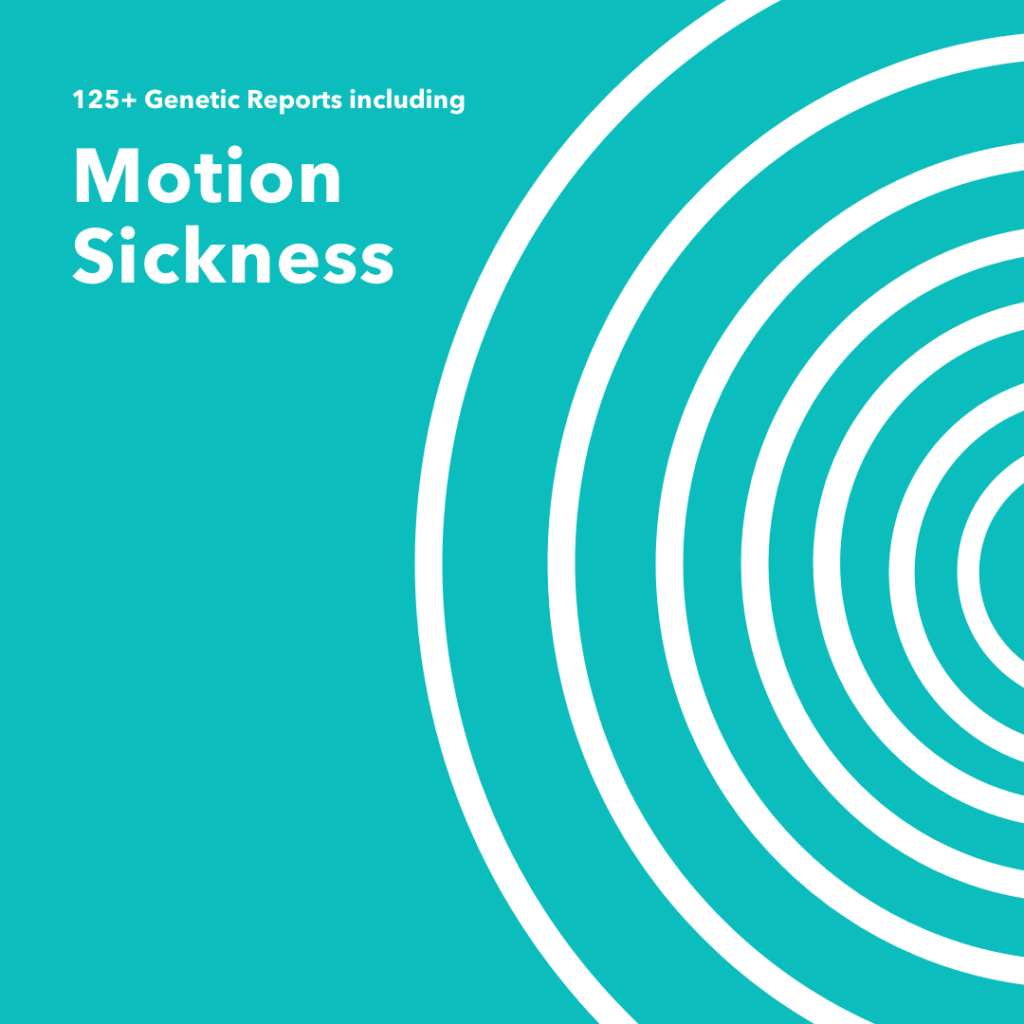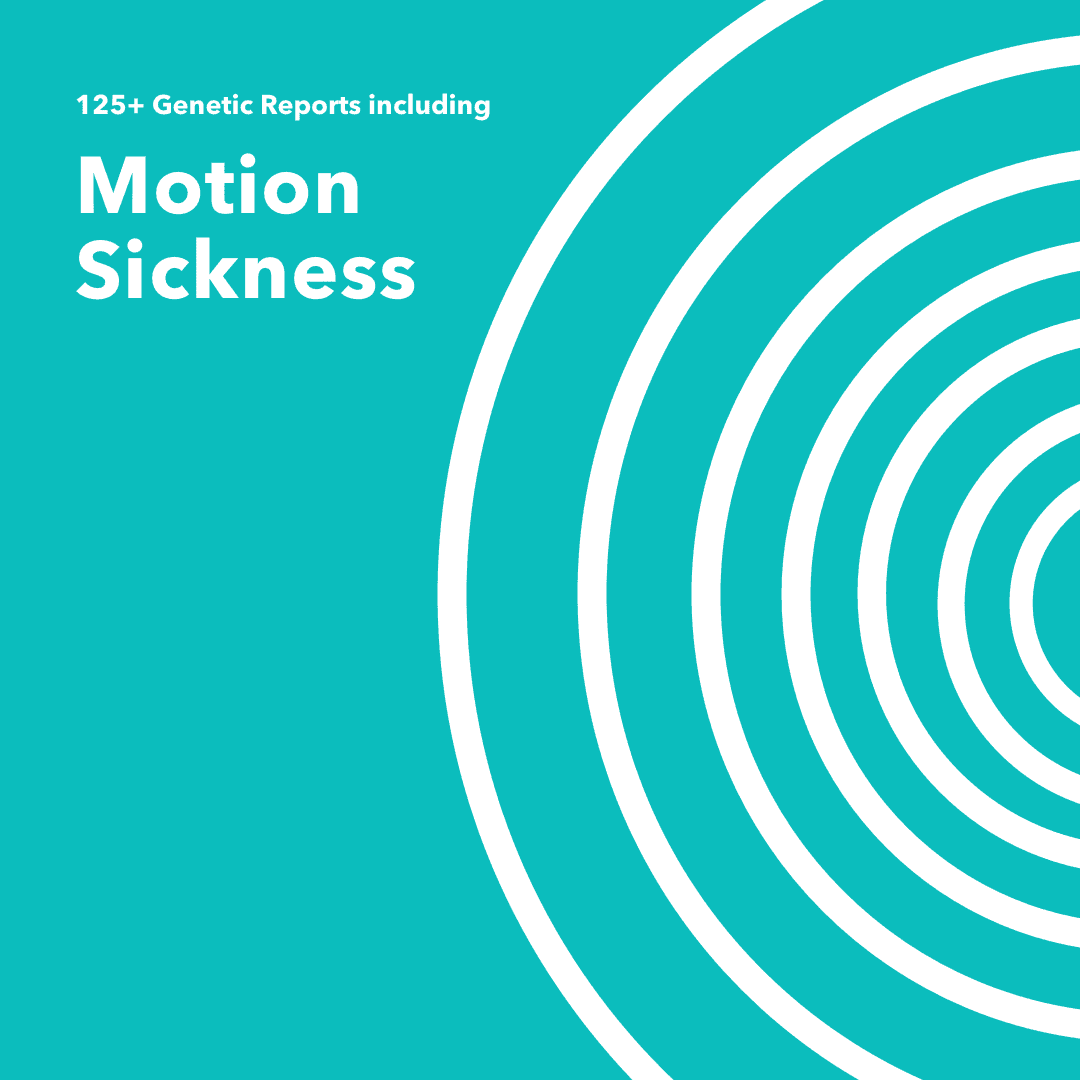If even the idea of a boat trip triggers a bit of nausea, you may be able to partly blame it on your genetics.
23andMe scientists have identified more than 413 genetic variants associated with motion sickness — that queasy feeling some of us get riding in cars, planes or traveling on the sea.
23andMe now offers a report on a customer’s genetic predisposition for motion sickness. Using data from more than 480,000 customers who’ve participated in research, 23andMe’s new report analyzes a customer’s genetic data against variants associated with motion sickness. On top of using genetic factors the report also takes into account non-genetic factors such as a customers age, sex, and ancestry, and then reports back whether a customer is more or less likely to experience motion sickness.

The sensation comes, in part, from one’s body trying to maintain balance. To keep our balance, we all rely on signals from multiple sources, both visual and physical, as well as signals from the vestibular system in our inner ear. When those sensory signals conflict — say our vision tells us we are sitting still, but we can feel ourselves moving in a car or on a boat — it can trigger feelings of nausea or dizziness. A person’s genetics may make them more or less susceptible to feeling motion sickness.
While seemingly trivial, it’s not for those who experience severe cases. And motion sickness has been found to be associated with several other more serious conditions. 23andMe previously published a study that confirmed associations with such conditions as migraines, vertigo, and morning sickness.
This report, as well as the now more than two-dozen other trait reports we offer within the Health + Ancestry Service, are meant to give customers a bit more insight into the fascinating world of genetics. They also add to the understanding of how your DNA and environment interact to help influence all the many things that are part of who you are.




